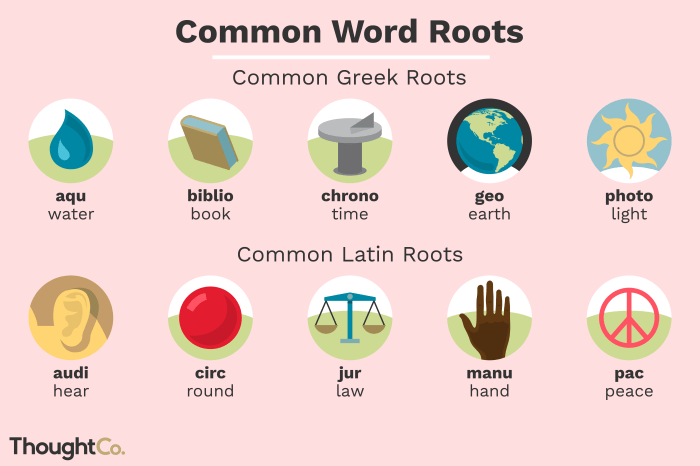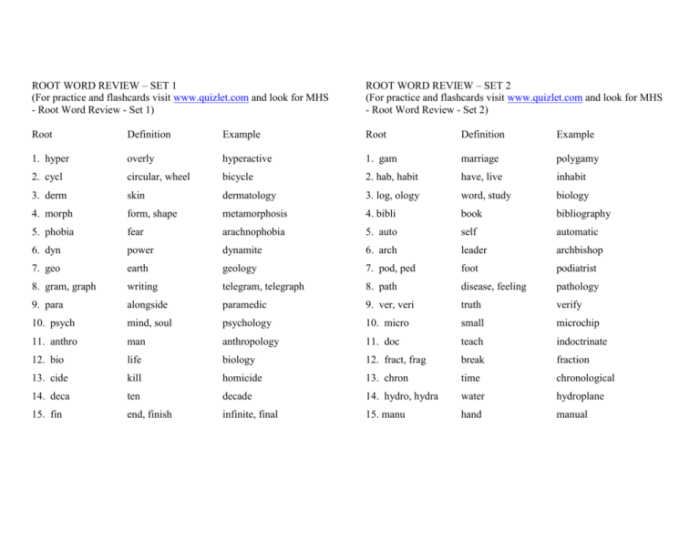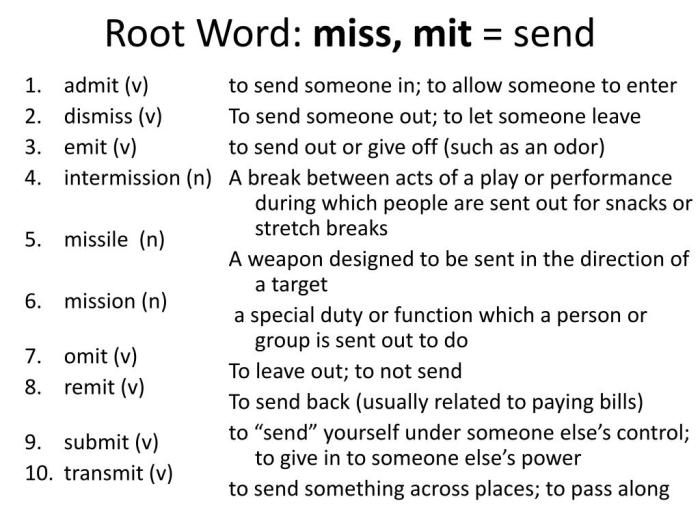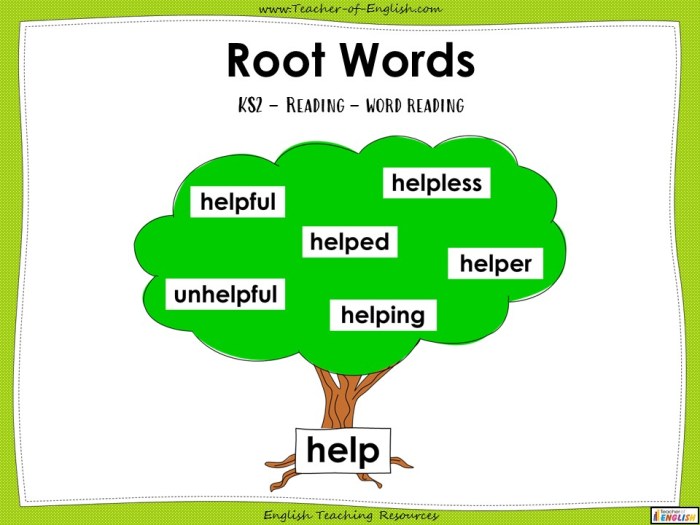Words with the root word miss – Words with the root word “miss” permeate our language, conveying a spectrum of meanings and nuances. From the yearning of a lost connection to the precision of a missed target, the root “miss” paints a vivid tapestry of human experience.
This exploration delves into the etymology, parts of speech, synonyms, antonyms, idioms, and cultural significance of “miss,” revealing its multifaceted nature and enduring presence in our lexicon.
Definition and Etymology

The root word “miss” signifies “to fail to meet or obtain something” or “to feel a lack of something or someone.”
Its etymological journey begins with the Latin verb mittere, meaning “to send” or “to let go.” This Latin root traces its ancestry back to the Proto-Indo-European (PIE) root – meit-, which also conveys the notion of “sending” or “letting go.”
Parts of Speech: Words With The Root Word Miss

The word “miss” can take on various parts of speech, each with its own distinct function and meaning.
Nouns
As a noun, “miss” refers to:
- A young woman or unmarried female.
- A title of respect for an unmarried woman.
- An error or mistake.
Verbs
As a verb, “miss” can mean:
- To fail to hit or reach something.
- To fail to notice or be aware of something.
- To fail to meet or keep an appointment.
- To feel sadness or longing for someone or something absent.
Adjectives
As an adjective, “miss” describes something that is:
- Absent or lacking.
- Not present or available.
- Not successful or satisfactory.
Adverbs
As an adverb, “miss” means:
- Without hitting or reaching something.
- Without noticing or being aware of something.
- Without meeting or keeping an appointment.
Synonyms and Antonyms

The verb “miss” has a range of synonyms that convey its various nuances. Understanding these synonyms helps us grasp the subtle differences in meaning and usage.
Antonyms of “miss” provide contrasting meanings, highlighting the opposite actions or states.
Synonyms
- Fail:Implies an unsuccessful attempt or effort, often with negative consequences.
- Omit:Intentionally leave something out or neglect to include it.
- Lose:No longer have possession of something, often unintentionally.
- Yearn:Have a strong desire or longing for something or someone absent.
- Regret:Feel sorrow or remorse for a past action or decision.
Antonyms
- Hit:Successfully reach or strike a target.
- Include:Incorporate or involve something as part of a whole.
- Gain:Acquire or obtain something, often through effort or achievement.
- Indifferent:Lacking interest or concern.
- Rejoice:Experience great joy or happiness.
Idioms and Phrases

The root word “miss” appears in several common idioms and phrases, each conveying a unique meaning and usage.
Table of Idioms and Phrases
The following table presents a list of idioms and phrases that include “miss”:
| Idiom/Phrase | Meaning | Example Usage |
|---|---|---|
| Miss the boat | To fail to take advantage of an opportunity | “I missed the boat on investing in that new company.” |
| Miss the mark | To fail to achieve a goal or target | “The team’s performance missed the mark set by their coach.” |
| Miss someone/something | To feel a sense of longing or absence for someone or something | “I miss my family when I’m away from home.” |
| Miss the point | To fail to understand or grasp the main idea | “The student missed the point of the lecture and failed the test.” |
| Give someone a miss | To avoid or skip something or someone | “I’m going to give that party a miss tonight.” |
Cultural and Historical Significance

The word “miss” holds significant cultural and historical importance, extending beyond its literal meaning. It has been a subject of exploration in various artistic expressions, contributing to the collective human experience.
Words with the root word “miss” often imply a sense of longing or absence. The word “mission,” for instance, refers to a task sent from above, implying a departure from one’s current state. Interestingly, in the context of doctrine and covenants 6 36 , we find the concept of “missing” linked to the notion of seeking knowledge and guidance from God.
Thus, the root word “miss” weaves its way through both the temporal and spiritual realms, connecting our human longing to the divine.
In literature, “miss” has been used as a term of endearment, conveying affection and familiarity. It has also been employed to express longing and nostalgia, evoking memories of cherished individuals or moments.
Music and Art
In music, the word “miss” has been incorporated into song lyrics, often expressing themes of love, loss, and separation. It has also been used as a descriptor in music theory, referring to a note that is slightly out of tune.
In art, “miss” has been used as a subject matter in paintings, sculptures, and other forms of visual expression. Artists have explored the emotions and experiences associated with missing someone or something, capturing the essence of longing and loss.
Related Words

The root word “miss” spawns a family of related words that share semantic connections. These words encompass the concepts of absence, error, and failure, extending the core meaning of “miss” in various contexts.
Beyond the basic verb “miss,” other words derived from the root include:
Misfire
Misfire denotes a failure in the proper functioning of a device, particularly in the context of engines or weapons. It implies an unexpected or unintended interruption in the expected operation.
- Example: The car’s engine misfired, causing it to stall in the middle of the road.
Miscalculate
Miscalculate refers to an error in judgment or estimation, resulting in an incorrect outcome. It highlights the discrepancy between intended and actual results.
- Example: The accountant miscalculated the company’s profits, leading to a significant financial loss.
Misdeed, Words with the root word miss
Misdeed encompasses actions that violate moral or ethical standards, ranging from minor transgressions to serious crimes. It carries a negative connotation, implying wrongdoing or misconduct.
- Example: Stealing is a serious misdeed that can have severe consequences.
Mispronounce
Mispronounce refers to the incorrect or inaccurate pronunciation of words, often resulting in a distorted or unintelligible utterance. It highlights the discrepancy between intended and actual speech.
- Example: The student mispronounced the word “February” as “Febuary.”
Key Questions Answered
What is the origin of the root word “miss”?
The root word “miss” traces its roots to the Latin word “mittere,” meaning “to send,” and the Proto-Indo-European root “mei-,” meaning “to diminish or lose.”
What are some common synonyms for “miss”?
Synonyms for “miss” include: lose, fail, omit, lack, yearn for, and desire.
What is an example of an idiom that includes the word “miss”?
A common idiom that includes the word “miss” is “to miss the boat,” which means to lose an opportunity.